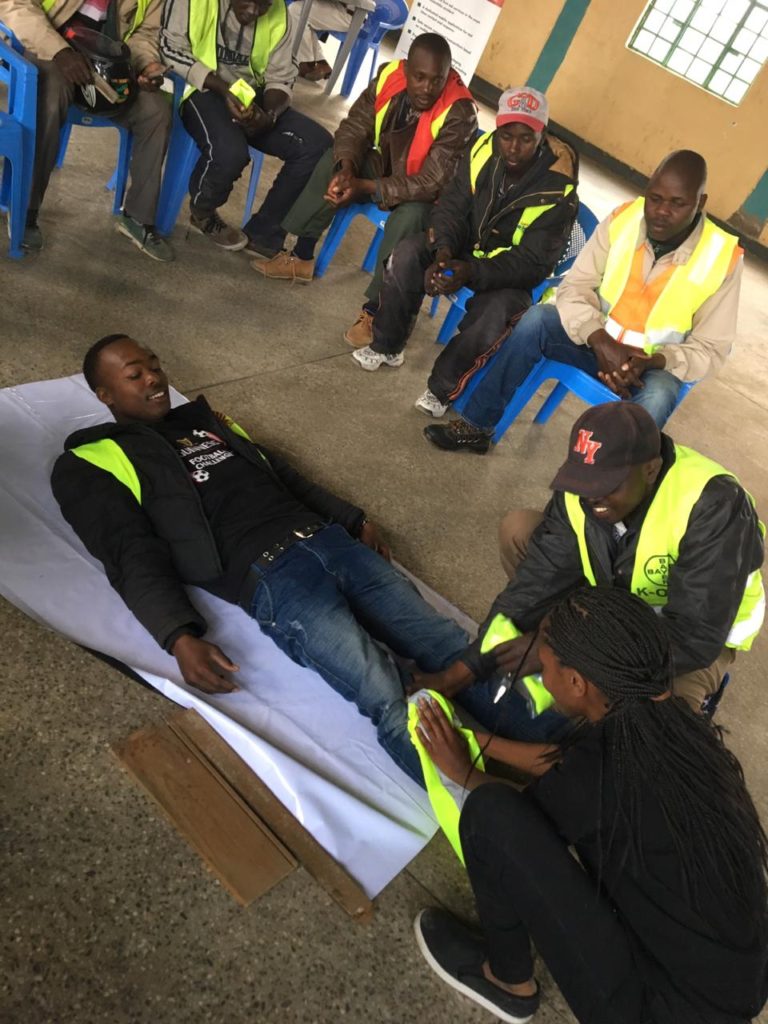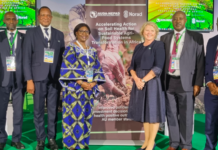By: Lilian Museka
Kenya’s motorcycles commonly known as’ bodaboda’ have become a very popular means of transport for short distances and also serve as an income earner for most middle and low class. However, it has become a major cause of accidents leading to increased fatalities.
Statistics from the National Transport and Safety Authority (NTSA) show that 1,421 riders and passengers died in 2019 compared to 1,049 drivers and passengers for motor vehicle-related cases.
The statistics add that between January 1st and 26th, 54 motorcyclists had died compared to 43 cases for the same period in 2019.
“Families are either losing their breadwinners or incurring high medical bills during treatment of their loved ones involved in motorcycle accidents. This calls for urgent measures by stakeholders to curb these increasing cases, “says Mr. Benson Asiimwe, Chief Executive Officer at RideSafe Africa.
The organization, a first-time blockchain-based application offering real-time emergency response solutions to motorcyclists in the event of accidents partners with several hospitals to provide first response to the victims.
RideSafe Africa brings together riders, first responders (hospitals), passengers and investors to build a network that allows them to access riding and health services
Benson explains that “ while working at a medical institution in 2017 as an administrator, I would witness many public motorcycle riders brought in following accidents they had gotten involved in. On several occasions, there was either poor handling of the victims, delayed responses that could sometimes lead to death or the victims did not have payment plans that would deny them access to treatments.”
Benson shared his concerns with his fellow worker at the hospital, who bought into the idea; together they approached the management who allowed them to set up RideSafe Africa.

“Saving lives is our passion and key component and we sort to build on this to ensure the motorcyclist victims are able to access First Aid in the shortest time possible. To harness this, we looked at issues of how affordable this can be, allowing the riders to make contributions that would be used to pay for their medical care. The blockchain idea came in and we use contracts to ensure quality is delivered for payments to be disbursed,” he adds
The co-founder explains that they use empowerment forums to enroll the riders through the USSD codes but is now migrating its users to the app they set up.
He adds that once enrolled, they can access the insurance by contributing either Ksh 5 a day, Ksh. 38 a week, Ksh.150 a month or Ksh. 1,800 annually. This gives them a Ksh. 3,000 cover per visit for medical attention at the specific hospitals in the case of an accident.
The rider’s premiums are converted into tokens that are stored in an escrow, and can only be paid out to the first responder when specific deliverables have been met like treatment.
“When a rider is involved in an accident, they can either use the USSD, the platform or quick enough use the number displayed to call for an emergency. Ridesafe will then, in turn, ensure quick intervention from first responders,” says Benson
“We have partnered with 27 hospitals to offer first response medical services including ambulance services, emergency x-ray, minor surgery, start dose , and blood arresting among others. Some of the hospitals in the partnership include St. Peters Kishani Health Centre, Imara Med, Medical Clinic, Fortjesus Medical clinic, Wananchi Jamii Medical Centre and Maria Medical Services, among others.”
Currently, RideSafe Africa has signed 700 riders on their mobile application in Eastlands area and are gearing to sign more in Westlands, and other towns like Nakuru, Busia, Kisumu, and Mombasa by mid this year, and sign over 200,000 riders and 1,000 first responders by the third quarter of this year. Currently, the service is only available to riders in Nairobi.
According to Benson, Ridesfae Africa deducts 30 percent from each contributor as the company’s revenue collection and is looking forward to increasing the numbers to maximize on their collections.
He adds that they focused on ensuring riders can afford to pay their amount since their competitors who are emergency services are expensive and other insurance providers focus more on payments.
“We realized that the missing aspects were affordability and intervention time. We knew that to save a lifetime was the main aspect, and so RideSafe focused on building features that would help the rider to access first aid in the shortest time possible. To tackle the affordability we allowed them to make contributions that would be used to pay for their care.”
However, challenged to explain how costs of treatment going over Ksh 3,000 per victim’s visit are settled, Benson says, “Our main target is the emergency response where we concentrate on ensuring that they receive emergency treatment to avoid loss of life. If the costs exceed the specified amount, then the victim’s family will need to come in. But we have special agreements with the hospitals to ensure subsidized fee.”
The Bachelors of Business Information Technology graduate from Makerere University says they have also introduced training and empowerment programs for the riders to help in preventive measures.
“We use our platform to encourage the riders to be more careful in their operations. This is through conducting First Aid training Where We partner with some external trainers and so far we have conducted six sessions,” he says.
He adds, “We also do empowerment programs such as encouraging the riders to use their helmets, something many of them disregard. The Kenya Traffic Amendment Act Cap 403 mandates every driver and passengers to always wear a seat belt when inside a vehicle and so do these cover cyclists.
“This law was in the past enforced under the “Michuki rules” when the then late Minister for Transport and Communications (2002 to 2005) John Michuki restored sobriety on the public transport sector, that among other things required speed governors and passengers to belt up. Today most drivers and cyclists have disregarded this Act and we are trying to re-empower them,” he says
Riders are also provided with reflector jackets that are branded with RideSafe Africa emergency numbers so that in the event of an accident, Good Samaritans are able to use the number to call for help. The same is branded on their motorcycles
In 2018, RideSafe Africa participated in the Bulgaria-based Aeternity Starfleet Incubator; a program designed for startups that have set their sights on leveraging the potentials of blockchain technology and later secured 100,000 dollars funding from the venture firm.
“The funding helped us develop our technology, do awareness and onboarding campaign and facilitation in acquiring an office,” he adds
However, they have experienced challenges in getting the second batch of the seed funding thereby halting some of their operations.
“We are still hoping to get the next batch so that we can proceed with our expansion program.
Apart from the financial aspect, another challenge RideSafe has faced is trying to get bodaboda riders on board since they are quite unorganized.
“We really have to use a lot of convincing language to bring them on board as most of them do not buy in the idea of insurance but through our open-air empowerment programs, a number of them attend the events and we use the forums to issue them with free helmets and the jackets. They therefore become our ambassadors to the rest. So far this has worked and we are hopeful to work with more of them, concludes Benson














